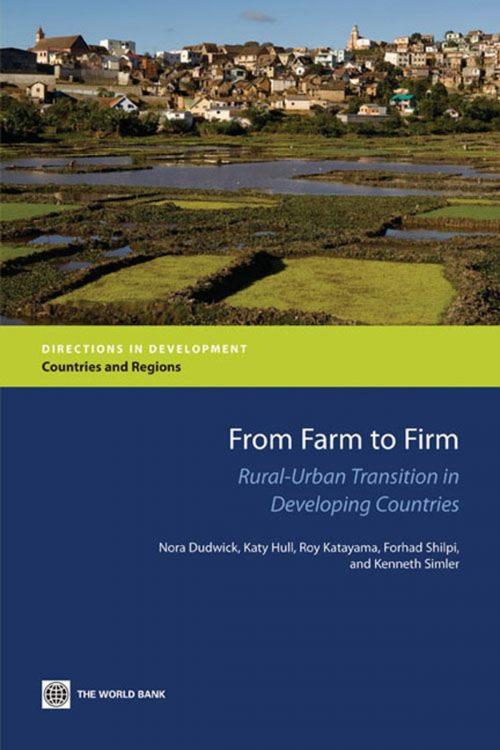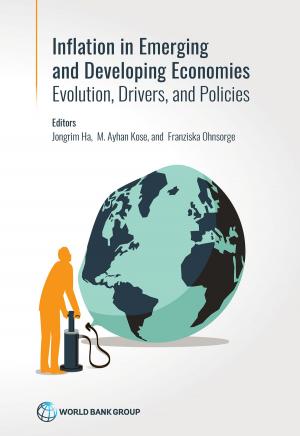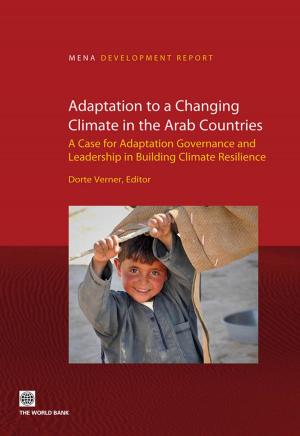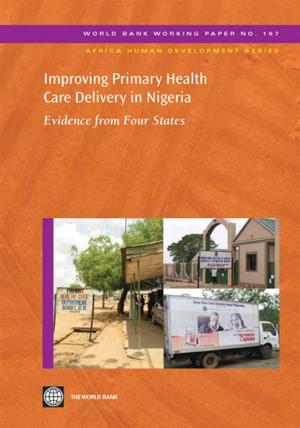From Farm to Firm: Rural-Urban Transition in Developing Countries
Business & Finance, Industries & Professions, Industries| Author: | Dudwick, Nora; Hull, Katy; Katayama, Roy; Shilpi, Forhad; Simler, Kenneth | ISBN: | 9780821386408 |
| Publisher: | World Bank | Publication: | May 26, 2011 |
| Imprint: | Language: | English |
| Author: | Dudwick, Nora; Hull, Katy; Katayama, Roy; Shilpi, Forhad; Simler, Kenneth |
| ISBN: | 9780821386408 |
| Publisher: | World Bank |
| Publication: | May 26, 2011 |
| Imprint: | |
| Language: | English |
The process of rural-urban transformation presents both opportunities and challenges for development. If managed effectively it can result in growth that benefits everyone; if managed poorly it can lead to stark welfare disparities and entire regions cut off from the advantages of agglomeration economies. The importance of rural-urban transition has been confirmed by two consecutive World Development Reports: WDR 2008 Agriculture for Development; and WDR 2009 Reshaping Economic Geography. Focusing on Sub-Saharan Africa and South Asia this book picks up where the WDRs left off investigating the influence of country conditions and policies on the pace pattern and consequences of rural-urban transition and suggesting strategies to ensure that its benefits results in shared improvements in well-being. The book uncovers vast inequalities whether between two regions of one country between rural and urban areas or within cities themselves. The authors find little evidence to suggest that these inequalities will automatically diminish as countries develop: empirical and qualitative analysis suggests that spatial divides are mainly a function of country conditions policies and institutions. By implication policymakers must take active steps to ensure that rural-urban transition results in shared growth. Spatially unbiased provision of health and education services is crucial to ensuring that the benefits of transition are shared by all. But connective infrastructure and targeted interventions also emerge as important considerations even in countries with severely constrained fiscal and administrative capacity. The authors suggest steps for navigating the tricky political economy of land reforms. And they alert readers to potential spillover effects that mean that policies designed for one space can have unintended consequences on another.Policymakers and development experts as well as anyone concerned with the impact of rural-urban transition on growth and equity will find this book a thought-provoking and informative read.
The process of rural-urban transformation presents both opportunities and challenges for development. If managed effectively it can result in growth that benefits everyone; if managed poorly it can lead to stark welfare disparities and entire regions cut off from the advantages of agglomeration economies. The importance of rural-urban transition has been confirmed by two consecutive World Development Reports: WDR 2008 Agriculture for Development; and WDR 2009 Reshaping Economic Geography. Focusing on Sub-Saharan Africa and South Asia this book picks up where the WDRs left off investigating the influence of country conditions and policies on the pace pattern and consequences of rural-urban transition and suggesting strategies to ensure that its benefits results in shared improvements in well-being. The book uncovers vast inequalities whether between two regions of one country between rural and urban areas or within cities themselves. The authors find little evidence to suggest that these inequalities will automatically diminish as countries develop: empirical and qualitative analysis suggests that spatial divides are mainly a function of country conditions policies and institutions. By implication policymakers must take active steps to ensure that rural-urban transition results in shared growth. Spatially unbiased provision of health and education services is crucial to ensuring that the benefits of transition are shared by all. But connective infrastructure and targeted interventions also emerge as important considerations even in countries with severely constrained fiscal and administrative capacity. The authors suggest steps for navigating the tricky political economy of land reforms. And they alert readers to potential spillover effects that mean that policies designed for one space can have unintended consequences on another.Policymakers and development experts as well as anyone concerned with the impact of rural-urban transition on growth and equity will find this book a thought-provoking and informative read.















